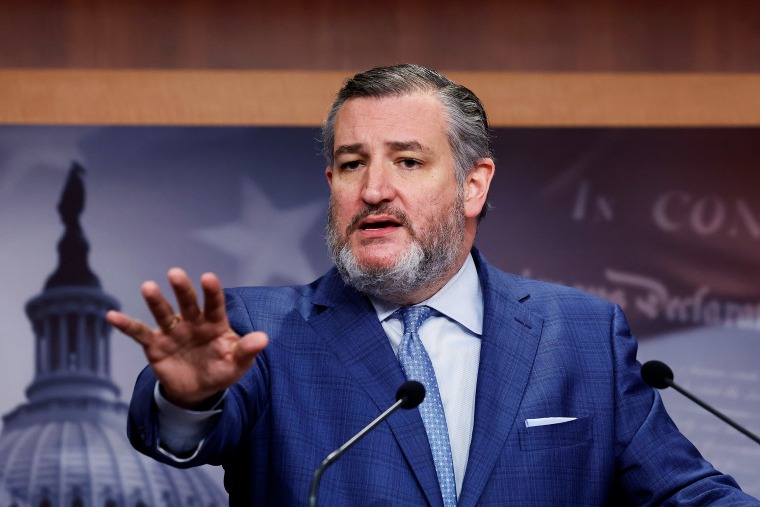To know anything about Sen. Ted Cruz is to know that he’s never been especially popular on Capitol Hill. To appreciate just how disliked the Texan is among his colleagues, consider a joke Republican Sen. Lindsey Graham told in 2016: “If you killed Ted Cruz on the floor of the Senate, and the trial was in the Senate, nobody would convict you.”
The South Carolinian was making a bipartisan assessment at the time. Over the course of his tenure, GOP senators have come to see Cruz as a tiresome, grandstanding blowhard who causes more problems for the party than he solves. Former House Speaker John Boehner went so far as to refer to Cruz as “Lucifer in the flesh,” adding, “I have never worked with a more miserable son of a bitch in my life.”
Among Democrats, the Texas Republican’s reputation is vastly worse. Cruz, in Democrats’ estimation, is a toxic, far-right election denier who prefers partisan podcasting to governing, and who cannot be trusted, liked, or respected.
For years, Cruz made little effort to deny his unpopularity among his colleagues. In fact, he embraced it, effectively bragging about his I’m-not-here-to-make-friends approach to Senate work.
But after more than a decade in Congress, as he prepares for a potentially competitive re-election fight, the senator is trying something new, unexpected, and implausible for those who’ve followed his career: Ted Cruz is encouraging voters to see him as a figure capable of bipartisan cooperation. The Texas Tribune recently reported:
Heading into the heat of his reelection race against Dallas Congressman Colin Allred, U.S. Sen. Ted Cruz is testing the waters with a rebrand. Cruz, who has made a name for himself as an uncompromising conservative stalwart, is casting himself as a bipartisan lawmaker with a penchant for reaching across the aisle.
The Wall Street Journal soon after published a related report, noting that Cruz is “rolling out a softer, bipartisan side,” and taking steps to “recast his image as a dealmaking lawmaker.”
The article added, “His campaign even shot ads featuring ‘Democrats for Cruz.’”
A week later, The Washington Post noted the Texan’s role in shepherding a bill that he’d co-authored overseeing the Federal Aviation Administration. “It’s been a whiplash moment for his colleagues, Republicans and Democrats alike, who have rarely seen Cruz take his Ivy League intellect and channel it into something so ... bipartisan,” the article said.
Stepping back, there are a couple of questions hanging overhead.
The first, of course, is why he’s doing this. I won’t pretend to know what the senator is thinking, but there are a handful of possibilities to consider.
It’s possible, for example, that Cruz, after 11 years of accomplishment-free grandstanding, has finally come to realize that he can use his position to advance policy goals. Or put another way, perhaps it’s finally dawned on the Texas Republican that he might be able to get some things done if he tries acting less like a mindless partisan and more like an actual senator.
It’s also possible that Cruz is truly worried about his re-election prospects and he’s toying with a political rebrand in the hopes of expanding his electoral appeal. Let’s also not forget that the senator has presidential ambitions, and his interest in a future national race might help explain his latest shifts.
All of which leads to the second question: How long will this “rebranding” initiative last?
Time will tell, of course, but given everything we’ve seen from Cruz throughout his career, it’s difficult to imagine his alleged interest in bipartisanship extending beyond Election Day 2024.

